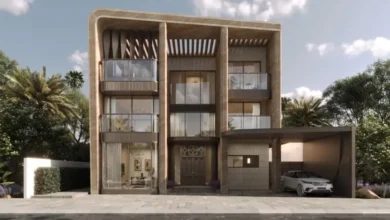
The Dubai law allows one person in 5.0 square metres of space in villas and apartments in the emirate. More than one occupancy within the 5.0 sqm of space is considered overcrowding and a violation of local laws.
“The minimum space for occupancy, dealt with by Dubai Municipality building code, states that for residential accommodation or shared sleeping spaces purposes, the allocated space per individual is 5.0 square metres from the net area,” said Mohammed Kawasmi, partner, real estate, Al Tamimi & Co.Burj Khalifa Fountain Show.
For labour accommodation and similar sleeping spaces, Dubai regulatory authorities allow one person per 3.7 square metres from the net area.
Net area refers to the usable space a resident can occupy and use for their specific purposes, excluding common areas, structural elements, and spaces occupied by building services.
Property owners banned
On August 19, the Dubai Land Department (DLD) banned 10 property owners from leasing their properties due to overcrowding and safety standards following inspections carried out by the regulator’s partners.
“DLD, in partnership with its strategic partners, conducted thorough inspection campaigns that resulted in banning 10 property owners from leasing and subleasing their properties until they resolve their issues and fully meet overcrowding, health and safety standards,” it said, adding that these firm measures were taken due to repeated violations and warnings to comply with DLD regulations, which are crucial for maintaining stability in Dubai’s real estate market,” it said.
Mohammed Kawasmi said the recent enforcement action by the Dubai Land Department (DLD) highlights the critical importance of compliance with overcrowding regulations in Dubai’s residential market. Property owners must adhere to specific occupancy limits, ensuring that the number of residents per bedroom meets the legal requirements.
“The DLD’s decision to ban non-compliant landlords from leasing underscores the potential risks and penalties involved, including significant fines and leasing prohibitions. This serves as a vital reminder for property owners to maintain adherence to health, safety, and occupancy standards to avoid legal consequences and ensure tenant safety,” said Kawasmi.
He elaborated that maintaining compliance with these regulations not only protects property owners from legal action but also contributes to the overall stability and reputation of Dubai’s real estate market.
“Also, sharing leased properties without the landlord’s consent is a breach of tenancy law and entitles the landlord to terminate tenancy contracts in addition to the fines imposed by the competent authorities,” said Al Tamimi & Co.’s partner.
Dubai has similar laws of maximum capacity for other real estate properties such as retail, malls, schools and colleges, hospitals, storage facilities and factories.
For classrooms in schools and colleges, one occupant is allowed 1.9 square metres of space and one individual over 4.6 square metres at laboratories and vocational facilities.





